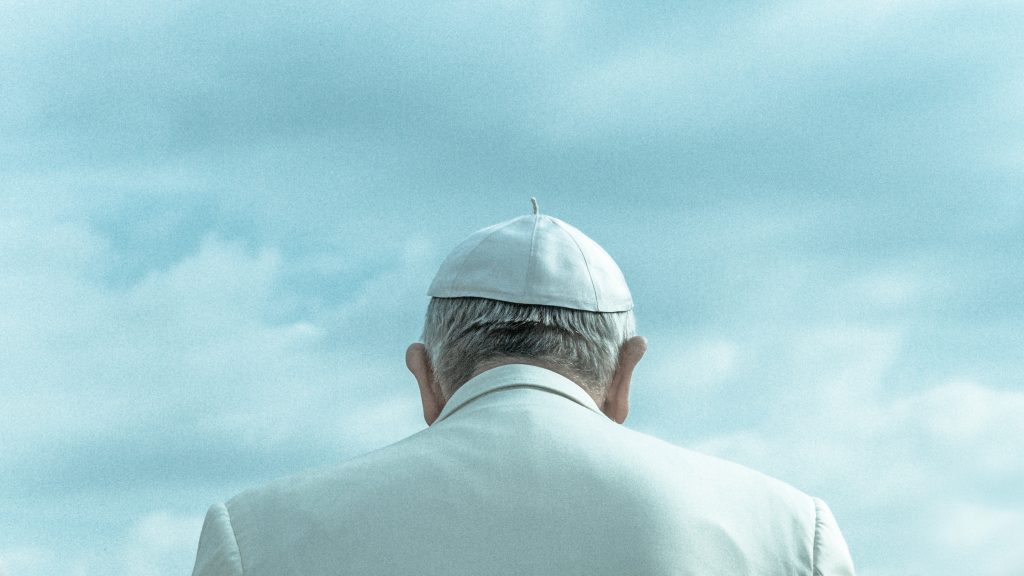The call to holiness and mission are two sides of the same coin of self-gift. To make a sincere gift of oneself – through a generous pursuit of holiness and mission – is the highest, most innate, and fundamental human vocation and it is conferred at baptism not at ordination.
[bctt tweet=”To make a sincere gift of oneself is the highest, most innate, and fundamental human vocation and it is conferred at baptism not at ordination.” username=”BrettPowellorg”]
Every baptized Christian shares in the priestly, prophetic and kingly ministry of Jesus Christ. There are no second-class citizens in the People of God, only sons and daughters.
[bctt tweet=”Every baptized Christian shares in the priestly, prophetic and kingly ministry of Jesus Christ. There are no second-class citizens in the People of God, only sons and daughters.” username=”BrettPowellorg”]
From Pope Francis as in Evangelium Gaudium:
“In virtue of their baptism, all members of the People of God have become missionary disciples. All baptized, whatever their position in the Church or their level of instruction in the faith, are agents of evangelization, and it would be insufficient to envisage a plan of evangelization to be carried out by professionals while the rest of the faithful would simply be passive recipients.”

If the Church is ever going to realize the Lord’s vision of making disciples of all nations, we need a resurgence in the role and the co-responsibility of the laity. The Church, through the laity, lives in the world. The lay faithful are sent into the center of culture and society to continue the redemptive work of Jesus Christ which, by its very nature, concerns the salvation of humanity and the renewal of the whole temporal order (John Paul II in Christifideles Laici).
[bctt tweet=”If the Church is ever going to realize the Lord’s vision of making disciples of all nations, we need a resurgence in the role and the co-responsibility of the laity.” username=”BrettPowellorg”]
The lay faithful have the primary task of closing the widening gap between the Church and culture. The lay faithful are called to evangelize the nations, to transform the temporal order and to bring the world into relationship with God. One of the primary functions of the ordained ministers of Jesus Christ is to equip, release and bless the laity for this work of evangelical ministry.
[bctt tweet=”One of the primary functions of the ordained ministers of Jesus Christ is to equip, release and bless the laity for this work of evangelical ministry.” username=”BrettPowellorg”]
CS Lewis has a beautiful line on humility, “Humility is not thinking less of yourself, but thinking of yourself less.”
One antidote to the problem of clericalism in the Catholic Church, an issue that Pope Francis continually surfaces, is not to think less of the priesthood but to think of the priesthood less. In other words, remembering, valuing, blessing, and endorsing the role of the common priesthood of the laity, especially for the New Evangelization. If the laity do not become chief catalysts in transforming the culture, who will? If the laity are not on the front lines of the Church’s shift from Christendom mode to Apostolic mode, how much impact will we have?
[bctt tweet=”One antidote to the problem of clericalism in the Catholic Church, an issue that Pope Francis continually surfaces, is not to think less of the priesthood but to think of the priesthood less.” username=”BrettPowellorg”]

A healthy Church lives what John Paul II called a Spirituality of Communion. A profound respect and appreciation for all the unique states and vocations of life. To make the Church the home and the school of communion: that is the great challenge facing us in the millennium which is now beginning.
- Before making practical plans, we need to promote a spirituality of communion, making it the guiding principle wherever Christians are formed, wherever ministers of the altar, consecrated persons, and pastoral workers are trained, wherever families and communities are being built up.
- A spirituality of communion means an ability to think of our brothers and sisters in faith within the profound unity of the Mystical Body, and therefore as “those who are a part of me”.
- This makes us able to share their joys and sufferings, to sense their desires and attend to their needs, to offer them deep and genuine friendship.
- A spirituality of communion implies also the ability to see what is positive in others, to welcome it and prize it as a gift from God: not only as a gift for the brother or sister who has received it directly, but also as a “gift for me”.
- Let us have no illusions: unless we follow this spiritual path, external structures of communion will serve very little purpose.
- They would become mechanisms without a soul, “masks” of communion rather than its means of expression and growth.
Priests and religious have been given a great gift and share in an incredible vocation. Their witness of complete abandonment and surrender to the Lord is truly inspiring. But priests and religious make up just 1% of the Church. Is it an effective strategic plan to ask 1% of the population of the Church to do 50% more for evangelization? Or, does it make more sense to ask 99% of the Church to do 5% more? The Hour of the Laity is not a call for lay people to become clerics. Not at all. It is a time to become what they should be and in becoming what they were meant to be, set the whole world ablaze.

